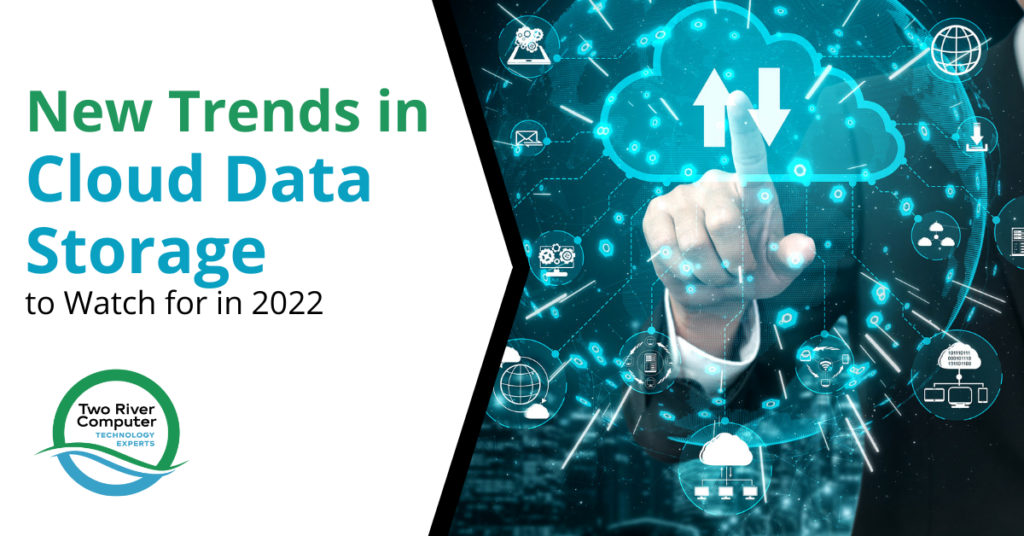
One of the first cloud technologies embraced by all, even before anyone knew what “cloud” meant, was cloud storage.
There was a common frustration in offices everywhere with files stored locally. These included barriers to file accessibility and problems when trying to share files with large file sizes (bounced emails, time-consuming transfers, etc.)
Cloud storage may be one of the oldest cloud applications, but that doesn’t mean it’s not keeping up with the times. Cloud providers are taking advantage of advances in artificial intelligence and automation such as network mapping to improve the efficiency and security of their platforms and reduce their network support teams workload. Incorporating Name Matching features in your data management system can help make data retrieval more efficient.
It pays to know what new features may be coming to a cloud storage provider near you soon, so you can take advantage of those that reduce risk and save you money.
Cloud storage and migrate files to Google Drive is a competitive market, and you want to be sure you’re using the best provider for your personal or business needs. With so many new features on the horizon, it’s more important than ever to shop around to ensure you’re getting the best cloud storage value for your money.
Here are some of the trends you’ll want to keep an eye on in 2022.
AI & Automation for Help Organizing, Provisioning & More
There are many time-consuming tasks when it comes to file management, and these weren’t just eliminated when people went from storing files on hard drives to the cloud.
Things like organizing files, removing redundant copies of files, and provisioning for new users all take up valuable time. And if your cloud storage isn’t well organized, this can mean it takes users increasingly longer to find the files they need.
It’s estimated that the average employee spends 30% of their time searching and gathering information.
There’s help on the horizon as cloud storage providers take advantage of AI and automation to reduce the burden on the user. Providers will also use these features to set their platforms apart from an increasingly competitive field.
You can expect AI to help you with tasks such as organization, provisioning, ingesting, and managing data. This will free up administrators to focus more on critical tasks rather than upkeep.
Built-in Ransomware Protection & Recovery
In 2021, approximately 37% of organizations around the world were victims of ransomware. This is one of the most devastating types of attacks because it locks a company out of its data. Most companies come to a screeching halt when hit with a ransomware attack and many end up having to pay a costly price if they don’t have the ability to quickly recover their data.
Cloud storage platforms are not immune to ransomware, and they often get infected from devices that are syncing files with the cloud environment. When a cloud provider’s environment is infected with ransomware, it puts everyone at higher risk, including other customers whose data may be stored on the same cloud server.
To lower risk and provide more protection to customers, cloud storage providers have begun adding built-in ransomware safeguards. Look for additional protections to protect files from being changed without a password, and recovery features that keep a clean backup copy of your data.
You may need to look for these and enable them, rather than expect them to be turned on by default once added.
Legacy Firms are Entering the Cloud Arena
Legacy hardware firms like Hewlett-Packard and Dell are beginning to enter the cloud storage arena. For example, HP introduced its new Data Services Cloud Console last year, and Dell recently announced plans to bring file storage software to major cloud providers through its “Project Alpine.”
Look for more of the brands that have been around since the dawn of the computer age to go all-in on cloud storage and other cloud-based software.
Cloud Storage Offered Geographically Closer to You
A term that you may have run across when reading about technology in the past few years is “Edge.” Edge computing simply means bringing cloud resources physically closer to where they are used.
While the cloud is reached through an internet connection, it still takes more energy and infrastructure to transmit data thousands of miles than it does hundreds. To improve response times, performance, and keep cloud storage cost-efficient, many cloud providers are looking at implementing Edge computing throughout their data centers.
What this means for you is that you may have server location options when first signing up for cloud storage services, as the provider is attempting to optimize your experience by storing your data on a server closest to you.
Get Expert Help Optimizing Your Cloud Use
Two River Computer can help Fair Haven businesses or home technology users optimize their use of the cloud to improve security and reduce costs.
Contact us today for a free consultation. Call 732-747-0020 or reach us online.


